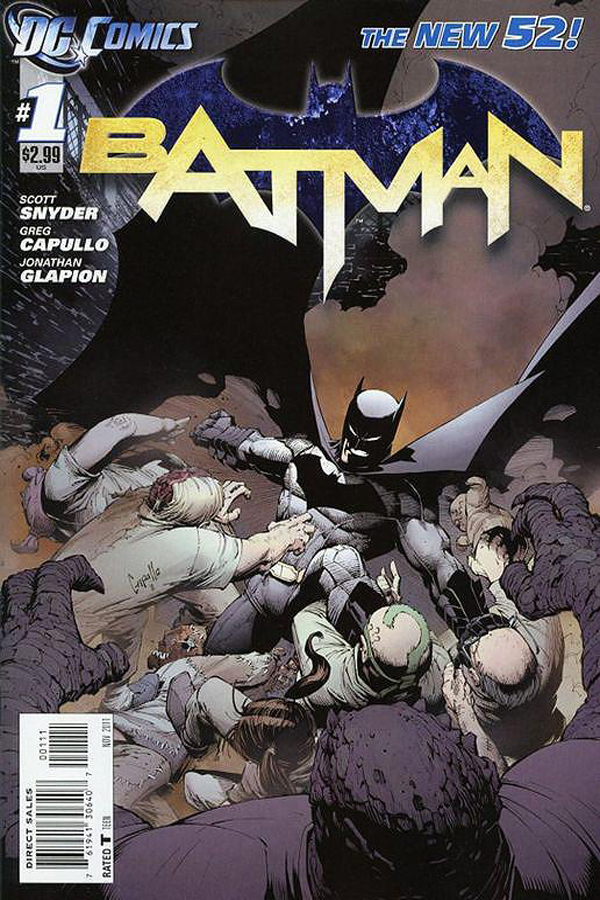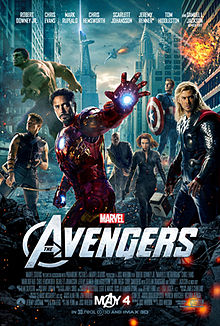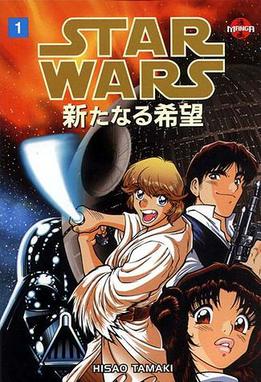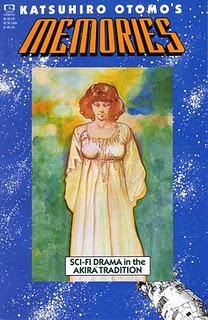By now, if you’re a movie critic, you’ve filed your Avengers — sorry, Marvel’s The Avengers — review and are girding your loins for The Amazing Spider-Man and The Dark Knight Rises. Before you hold forth on the evils of comic book movies, or write an essay about superhero decadence, let me offer a few suggestions for reviewing Spider-Man and The Dark Knight. These tips won’t guarantee that every DC or Marvel man will be wowed by your references to Rio Bravo and Yojimbo, or swayed by your measured criticisms, but they will ensure that movie-goers like me — smart folk who like Lawrence of Arabia and The Walking Dead — won’t roll our eyes in disgust at yet another review that begins, “Hollywood must be out of ideas, because they sure do like to make comic book movies.”
1. Don’t trot out the “superheroes are for kids” line.
Neither DC Comics nor Marvel have been publishing superhero comics for kids since the mid-1980s. OK — that’s not entirely true. In the interest of reaching out to younger readers, both companies have created all-ages versions of Batman, Spider-Man, and other popular stories. That both companies felt the need to create kid-friendly versions of these properties ought to tell you something about the content of most DC and Marvel products. Just compare an issue of any New 52 title with Tiny Titans if you don’t believe me; the difference in tone, presentation, and content will astonish you:


It’s fair to criticize the plot of a comic book movie as being too obvious or simplistic to sustain an adult’s interest, of course, but that’s not the same thing as dismissing the entire enterprise as “kids’ stuff” because ten-year-old boys used to be Stan Lee’s target audience. Comics have evolved. So should your critique of movies based on comics.
2. Get your facts straight.
Take it from a comic book reviewer: if you whiff a detail — no matter how insignificant — fans will stop following your argument and start building a case against you. Amy Nicholson — who wrote a smart, informed review of The Avengers — was eviscerated by fans who fumed that she’d referred to Samuel L. Jackson’s character as “Nick Frost” instead of “Nick Fury.” (The error has since been corrected.)
As someone who reviews Japanese comics in translation, I have deep sympathy for this reviewer. I’ve made similar mistakes, and have endured withering comments from readers who think it a cardinal sin to credit the wrong publisher for a book, or misspell a secondary character’s name. What I’ve learned from that experience is that you might demonstrate your erudition in ten other ways — through the quality of your insights, the depth of your cinematic knowledge, or the creativity of your language — but comics fans won’t give a damn about your opinion if you call Captain America “Stephen Rodgers.”
3. Do your homework.
The best comic-book films work equally well for devoted fans and newcomers alike: think Ghost World (2001), Spider-Man (2002), or Superman (1978), all of which had something to offer both groups of viewers. And while it’s beneficial to share your impression of a comic book movie as a member of the general public — as someone who knows Batman from the campy Adam West show, for example, or from watching Saturday morning cartoons — your review will be more authoritative if you take the time to learn a little more about the characters’ histories. Think about it this way: you wouldn’t review a big-screen adaptation of Sense and Sensibility without reading the novel or watching other versions, so why would you walk into a movie version of a long-running comic book franchise without at least familiarizing yourself with the characters? Read Wikipedia. Visit your local comic book store and talk to the sales clerks. Buy a few trades. It won’t kill you, I promise.
4. Remember that there are many comic book fans who will appreciate a thoughtful review.
We aren’t all rampaging monsters with a taste for critics’ flesh; many of us like an elegant turn of phrase or appreciate a Truffaut reference as much as you do. Don’t insult us for liking comic books, and we won’t sneer at you for suggesting The Avengers was overly long. Scout’s honor.




Sara K. says:
It’s a bit interesting to hear Taiwanese opinions of these movies – to them, these are movie characters, not comic book characters (the Taiwanese often know that the movies are based on comic books, they just don’t know much about the comics themselves because the comics are generally not available in Chinese). I suppose you could say it’s the equivalent to non-Asian critics reviewing Crouching Tiger Hidden Dragon – I best most non-Asian film critics didn’t read the original novel before reviewing the movie, nor due I blame them since I don’t think the novel has ever been translated into a European language.
Zeke Pliskin says:
What a shame you ended after a mere four points. Like the thoughtless critic you seek to educate with your wisdom, your critique of superhero movie critique skims the surface without ever making a decisive and definitive series of points.
)
This is a shame because your writing style is quite good, but unwillingness to be more outspoken and fanning appears to be holding you back somewhat. If this article had been four times as long and featured ten well-argued points it could have been inspiring and incendiary. Instead it just strikes this reader as unfinished.
I hope my critique of your critique of critics critiquing superhero movies doesn’t offend; I’m merely offering constructive criticism because you show enormous potential as a writer.
Zeke Pliskin says:
And because I typed this via smartphone without proofing and made the classic rookie mistake of accidentally using the same words too many times (apart from the international repetition of the word critique and the variations thereof) I have weakened my own argument(s).
Way to shoot yourself in the foot there, Zeke.
Katherine Dacey says:
I hope my critique of your critique of critics critiquing superhero movies doesn’t offend; I’m merely offering constructive criticism because you show enormous potential as a writer.
No, I’m not offended; honestly, I’m surprised that this post has generated so much attention. I never intended this to be a serious critique of movie reviews, just a starting point for a larger conversation about superhero films and how they’re discussed outside the comic fandom. To be honest, I’d much rather read what Ebert or Scott or Morgenstern has to say about The Avengers than an ardent Marvel fan, as I know that Ebert or Morgenstern’s criticism is informed by a deep understanding of film, rather than a passionate attention to the characters’ long and complicated histories. I’d just like to read a review that doesn’t insult me for liking comic books.
The Claw says:
Some superhero movies may rise above their genre, but insisting that film critics buy into your entire value system is a silly thing to ask. Film critics already have a cannon to refer to and a value system born of it: a hundred years of the evolution of the moving picture as a storytelling medium.
I don’t expect you to go to film school (or even watch the AFI 100) before boosting the kind of movies you like. You are a superhero guy. I get it and good luck to you. I’m not knocking your hobby. But trying to impose your affinity for superheroes on film critics is just as unwarranted as me telling you to watch a couple hundred other movies before you can talk about the ones you like.
Katherine Dacey says:
Psst… “cannon” = artillery, “canon” = standard, convention, body of work. I know the difference because I’m a musicologist and we, too, have a canon: Beethoven, Brahms, Shostakovich, Strauss, Stravinsky, Webern…
Martin says:
This isn’t so much an open letter to movie critics as it is a primer on how to review movies as a comic fan. That’s not their job though. Comic fans want the movie to be faithful to the comic, but movie critics (and many audience members) just want to watch it for what it is. They shouldn’t have to do tons of research. Not every critic does read the novel before they see the adaptation, and those that do often write the least interesting reviews because they just compare the two rather than seeing the movie as a movie. So no, the movie critic’s role is to analyze the movie for what it is, not for how well it evokes the source material.
Katherine Dacey says:
I think you raise some valid points here, Martin!
As I noted in my response to Zeke, I’d rather read a review by a good movie critic than an ardent fan of Thor or Captain America because the movie critic is less invested in whether the on-screen portrayal of his favorite character matches what’s in his imagination. At the same time, however, I don’t think it’s unreasonable to expect that a critic do his homework before going to see a movie based on a play, a book (comic or otherwise), or a TV show. Some of the most informative reviews of Dark Shadows, for example, discussed the soap opera at great length, providing a richer context for understanding what Johnny Depp and Tim Burton were trying to accomplish in updating the material for the big screen. If I’m reviewing a manga that’s based on a novel — say, No Longer Human, which is based on a widely read novel by Osamu Dazai — I make an effort to read it before I write my review. My comments are more thoughtful when I have some idea of how the artist has approached the adaptation process, even if I don’t devote a significant portion of the review to comparing the two versions.
Brian McInnis says:
Critics have almost unanimously praised Nolan’s Batman films. There is no comparing them to the likes of ‘Avengers’. Why in blazes did you think a critic wouldn’t watch a ‘Sense and Sensibility’ film without reading it? It is the duty of all film-makers to make each of their films stand entirely on its own.
Dan Langlois says:
I do notice that there are those who are inclined to hold forth on the evils of comic book movies, or write an essay about superhero decadence. And yet, I don’t think that your advice really seems that urgent—get your facts straight, do your homework? Fine whatever—and then hold forth on the evils of comic movies and write an essay about superhero decadence. BTW did somebody write an essay about superhero decadence? That sounds like the subject for an essay, actually. I think you’re alluding to Bill Willingham. Who is, in fact, the Fables scribe (of course, you’ve done your homework). I mean, you’re not thinking of him and his editorial about ‘an age of superhero decadence’, and promote American values, all this, which spilled over onto Comic Book Resources, the Onion AV Club..ring any bells?
The other two points also seem related to each other, ‘Don’t trot out the “superheroes are for kids” line’, and ‘Remember that there are many comic book fans who will appreciate a thoughtful review’, these notions appear to boil down to ‘don’t insult us’. At forty-two years old, I’m having difficulty w/processing the concept of a debate about whether comic books are for kids. Admittedly, I read The Dark Knight Returns and Watchmen in college. But that’s what, a yawning chasm from kids reading comics? I also read Moby Dick in college.
Count me as duly informed, but don’t oversell it, as to the difference of tone and presentation if I ‘compare an issue of any New 52 title with Tiny Titans’. However (you’ve done your homework) before Tiny Titans, there was Teen Titans. I take the ideal age for the audience attending the typical example of our current cycle of comic book movies to be 13. I would include the batman movies in this assessment. My point is not that I don’t like these movies, I bristle at negative reviews of Batman movies. Ones that start “Hollywood must be out of ideas, because they sure do like to make comic book movies.” But I consider myself to be in touch with my inner 13-year-old boy. Turns out, that it’s just to much work for me to edit this post into a coherent point.. :0)
Katherine Dacey says:
Dan: I sense that I’m (over)preaching to the choir here. My brief missive isn’t directed at someone like you, who obviously knows his Frank Miller from his Alan Moore; it’s directed at the legions of movie critics who don’t know much about comics. You think it’s obvious that there are comics for kids and comics for adults, but I can tell you as someone who’s been a contributor at the School Library Journal for four years, many intelligent people are uninformed about what DC Comics and Marvel publish.
The Ridger says:
As Joe Bob Briggs once said, “They didn’t flash a notice on the screen [of The English Patient] saying ‘if you haven’t read the book, go ask for your money back right now’.” I think it’s entirely fair to note that a movie makes no sense to the off-the-street viewer who isn’t familiar with the whole franchise. I think it’s entirely fair for the movie NOT to make sense to those people, for that matter; there’s nothing wrong with choosing an audience. But I wouldn’t expect every movie reviewer to read a novel before writing their reviews – some of them just want to talk about whether the movie works *as a movie*.
I guess I’m saying I think there are two different kinds of reviews: critical essays, and then the ones that say “this movie doesn’t work”… although, I grant you, “this movie doesn’t work if you haven’t read the book” means it does work for some folks, and if you haven’t read the book you can’t write that review. Hmmm. I guess I do agree with you.
Katherine Dacey says:
I wouldn’t expect every movie reviewer to read a novel before writing their reviews – some of them just want to talk about whether the movie works *as a movie*.
You’re right — it isn’t reasonable to expect that movie reviewers have read every book and seen every TV show that inspired a movie; they’d never have time to go to screenings! I do think, however, that it’s reasonable to expect the critic to have a passing material with the source material, especially when we’re talking about a movie that millions of people are interested in seeing.
Jade Harris says:
Uh, she didn’t write An Open Letter to Rotten Tomato Posters with an Over-inflated Sense Of Self-worth. No need to get so defensive, guys.
Katherine Dacey says:
Hi, Jade — it’s good to see at least two familiar faces in this comment thread! I don’t know why this post provoked so much snark. (The commenter who suggested I needed to do “research” to find out about the Teen Titans really slayed me.) It makes me grateful that this site’s core readership is so civilized — it’s much more satisfying to engage someone in a spirited debate when the tone is friendly and good-natured than when it’s laced with sarcasm.
Jade Harris says:
Not that I’m the model commenter all the time, but no I have no idea where any of those aggressive undertones came from. The arguments just aren’t based on what you’re saying there in the article.
Anyhoo, I read an article like this at some point and remember one of the points addressing every article about comics starting with goofy old-school onomatopoeia. “Smash! Bang! Zot! Shooting at local comic shop leaves 2 dead, 4 wounded,” that sort of thing. It’s not the Civil Rights Movement, but it’s nice to see how big media’s assessment of us geeks has evolved to a point where you can write something more poignant to critique here.
Katherine Dacey says:
That’s true; I’ve seen a lot fewer articles that trot out the “biff-bam-pow” cliche (or its hoary cousin, “It’s a bird, it’s a plane…”) as an opening gambit. Now if we could only have a moratorium on movie reviews in which the critic feels the need to talk about how comic book movies are a sign of intellectual and/or creative bankruptcy in Hollywood, I’ll be over the moon.
Amidamaru Reborn says:
I think I’ ve presented myself here before or if not I have already commented on some your reviews about Tenjo Tenge and Magic Knigth Rayearth manga. Anyways. I would like to express my opinion on this particular topic. About the complexity of the subject.
First of all I will reveal something that I usually reveal after sometime comenting. Actually I am a Brazilian. Yup. An south-american. Our country has many issues on education and contradictions. As contradictions of our representation in the foreign countries. Usually amricans come with an idea that we speak Spanish. Actually we speak Portuguese. This, thanks to various factors have been changing. Unfortunately the negative view thatothers have about our country isn’t somethin that have changed.
It is a very complex subject and I do not intend to go further about politics. I intend to go further in language here. And the teahing of our mother tongue. Grammar and use. Why so? Because we have a similar situation between this and the misundestanding about your text. Yo’ll see soon enough what I am talking about.
The grammar that we use in schools is completely strange to the pátterns of use of our own language. Or at least the majority of these manuals consist of a bunch fo rules that many times do not express the use. And if it express you have somewhat a disparity between what is written there as a rule and the real use.
Good grammars tend to suffer less from it but the taxinomy of the language seems odd because the gramar is not used in context. So you have Verbs that are used as subjects and so on. Besides that some regular uses are condemend by the grammar books.
Let’s give an example. In english you have the pronouns I, you, he/she, it, we and they. In portuguese we have Eu, Tu, Ele/a, Nós, Vós, Eles, Elas. Took out the pronoun Tu for Você. It is used as to referto same person in the discourse. But you do not use the second person of the singular. Você is used as an econd person but the verb is used according to the third person. get it? It is like using Thou nowadays instead of They. The differenceis that they are completly different expressions. The traditional grammar in fact recongnizes this use but does not sepaks about it. The point is NO ONE (and whern I say NO ONE it really is NO ONE) uses Vós but uses Você and Vocês.
Add up to all that confusion on the traditional books that we have really good researchers that are working to propose a particualr grammar to us Brazilians and they are not supported by the more traditional teachers and researchers. Grammar is to be followed even though it does not describes our language in a proper way. The general conception that people make about this disparity is because the people is undergrauated and stupid.
So you have a problem that has many issues in the middle and even though the solution isobvious we seem reluctant to adopt it because we have a tradition of the language that we inherited and the language that we actually use. Thus we do not accept our own idenity as Brazilian Poeruguese Speakers. Because we have the mentality that what we are is not as good as what others (foreigners ans thus the portuguese people) are.
The similarity between the cases sees to me rather obvious: Comicas are an underrated midia and been so specialized most of the art critics do not accept them as a valid midia.
I hope that I have made myself clear in that point for you. And sorry for the vaery specialized talk about Portuguese language. I really hope that I succeded in making myself clear to you.